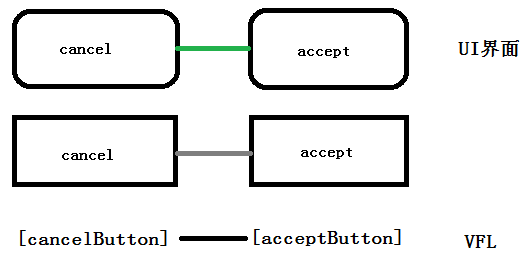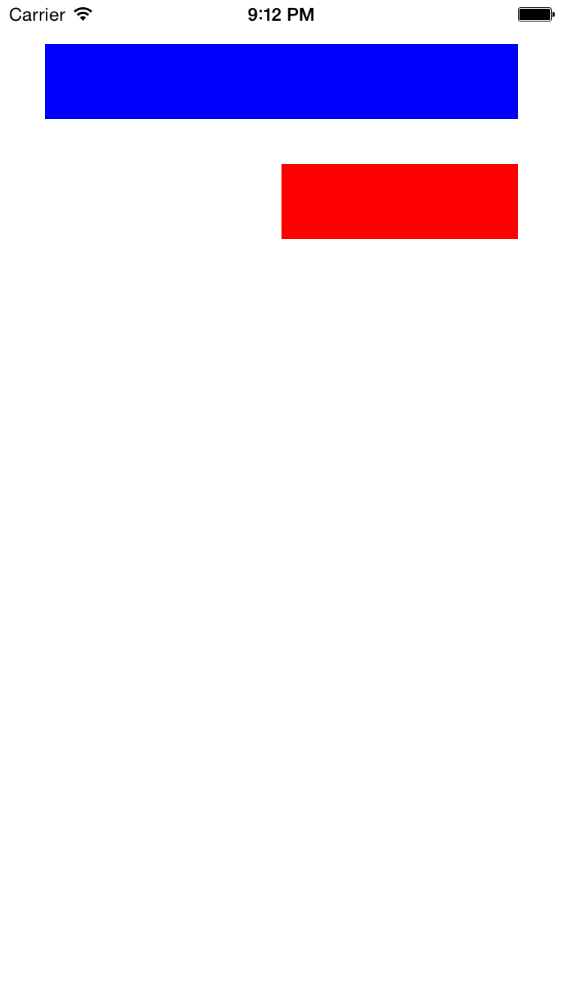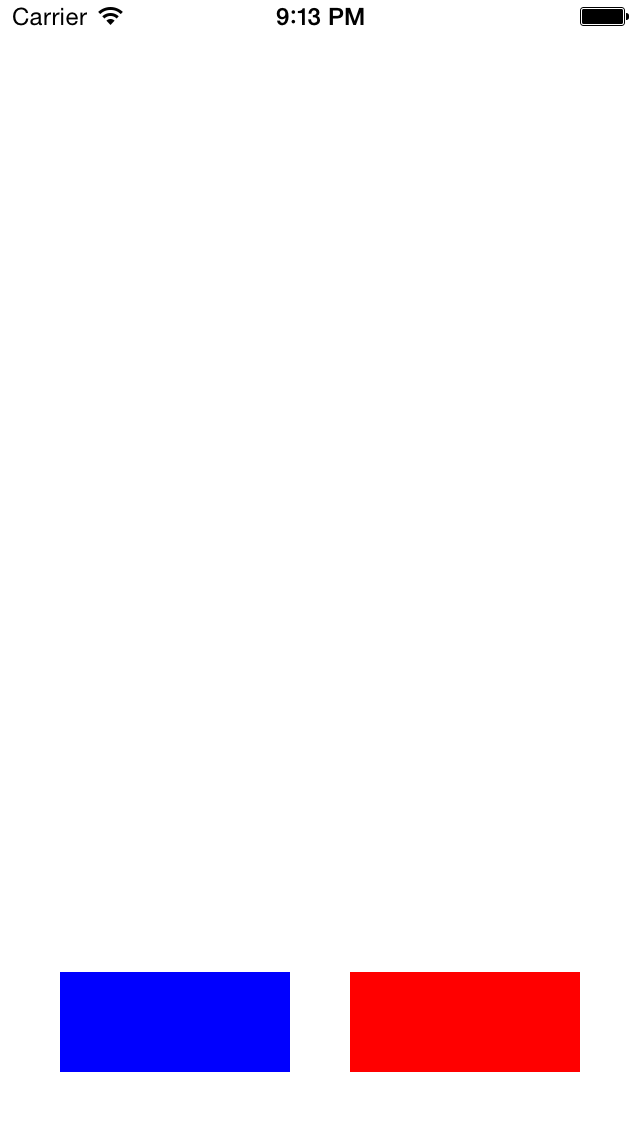VFL(Visual Format Language),“可视化格式语言”。VFL是苹果公司为了简化autolayout的编码而推出的抽象语言。本文分享VFL的基本使用方法。
什么是VFL语言
VFL(Visual Format Language),“可视化格式语言”。
VFL 是苹果公司为了简化autolayout的编码而推出的抽象语言。

语法说明
1
2
3
4
5
6
7
8
9
10
11
| H:[cancelButton(72)]-12-[acceptButton(50)]
cancelButton宽72,acceptButton宽50,它们之间间距12
H:[wideView(>=60@700)]
wideView宽度大于等于60point,该约束条件优先级为700(优先级最大值为1000,优先级越高的约束条件越先被满足)
V:[redBox][yellowBox(==redBox)]
垂直方向上,先有一个redBox,其下方紧接一个高度等于redBox高度的yellowBox
H:|-10-[Find]-[FindNext]-[FindField(>=20)]-|
水平方向上,Find距离父view左边缘间隔10,之后是FindNext距离Find间隔默认宽度;再之后是宽度不小于20的FindField,它和FindNext以及父view右边边缘的间距都是默认宽度。(竖线“|”表示superview的边缘)。
|
使用方法
1
2
3
4
5
6
7
8
9
10
| 使用VFL来创建约束数组
+(NSArray *)constraintsWithVisualFormat:(NSString *)format options:(NSLayoutFormatOptions)opts metrics:(NSDictionary *)metrics views:(NSDictionary *)views;
format:VFL语句
opts:约束类型
metrics:VFL语句中用到的具体数值
views:VFL语句中用到的控件
创建一个字典(内部包含VFL语句中用到的控件)的快捷宏定义
NSDictionaryOfVariableBindings(...)
|
实例展示
效果图如下:


实现代码
1
2
3
4
5
6
7
8
9
10
11
12
13
14
15
16
17
18
19
20
21
22
23
24
25
26
27
28
29
30
31
32
33
34
35
36
37
38
39
40
41
42
43
44
45
46
47
48
49
50
| -(void)horizontalLayout{
//1.添加两个控件
UIView *blueView = [[UIView alloc] init];
blueView.backgroundColor = [UIColor blueColor];
blueView.translatesAutoresizingMaskIntoConstraints = NO;
[self.view addSubview:blueView];
UIView *redView = [[UIView alloc] init];
redView.backgroundColor = [UIColor redColor];
redView.translatesAutoresizingMaskIntoConstraints = NO;
[self.view addSubview:redView];
//2.添加约束
//2.1水平方向的约束
NSString *hVFL = @"H:|-30-[blueView]-30-[redView(==blueView)]-30-|";
NSArray *hCons = [NSLayoutConstraint constraintsWithVisualFormat:hVFL options:NSLayoutFormatAlignAllBottom | NSLayoutFormatAlignAllTop metrics:nil views:@{@"blueView":blueView, @"redView":redView}];
[self.view addConstraints:hCons];
//2.2垂直方向的约束
NSString *vVFL = @"V:[blueView(50)]-30-|";
NSArray *vCons = [NSLayoutConstraint constraintsWithVisualFormat:vVFL options:0 metrics:nil views:@{@"blueView":blueView}];
[self.view addConstraints:vCons];
}
-(void)verticalLayout{
//1.添加两个控件
UIView *blueView = [[UIView alloc] init];
blueView.backgroundColor = [UIColor blueColor];
blueView.translatesAutoresizingMaskIntoConstraints = NO;
[self.view addSubview:blueView];
UIView *redView = [[UIView alloc] init];
redView.backgroundColor = [UIColor redColor];
redView.translatesAutoresizingMaskIntoConstraints = NO;
[self.view addSubview:redView];
//2.添加约束
//2.1水平方向的约束
NSString *hVFL = @"H:|-30-[blueView]-30-|";
NSArray *hCons = [NSLayoutConstraint constraintsWithVisualFormat:hVFL options:0 metrics:nil views:@{@"blueView":blueView}];
[self.view addConstraints:hCons];
//2.2垂直方向的约束
NSString *vVFL = @"V:|-30-[blueView(50)]-30-[redView(==blueView)]";
NSArray *vCons = [NSLayoutConstraint constraintsWithVisualFormat:vVFL options:NSLayoutFormatAlignAllRight metrics:nil views:@{@"blueView":blueView, @"redView":redView}];
[self.view addConstraints:vCons];
NSLayoutConstraint *redLeftCon = [NSLayoutConstraint constraintWithItem:redView attribute:NSLayoutAttributeLeft relatedBy:NSLayoutRelationEqual toItem:blueView attribute:NSLayoutAttributeCenterX multiplier:1.0 constant:0];
[self.view addConstraint:redLeftCon];
}
|
小结
最后对格式的字符串作一个总结介绍:
| 功能 |
表达式 |
| 水平方向 |
H: |
| 垂直方向 |
V: |
| Views |
[view] |
| SuperView |
竖线符号 |
| 关系 |
>=,==,<= |
| 空间,间隙 |
- |
| 优先级 |
@value |


